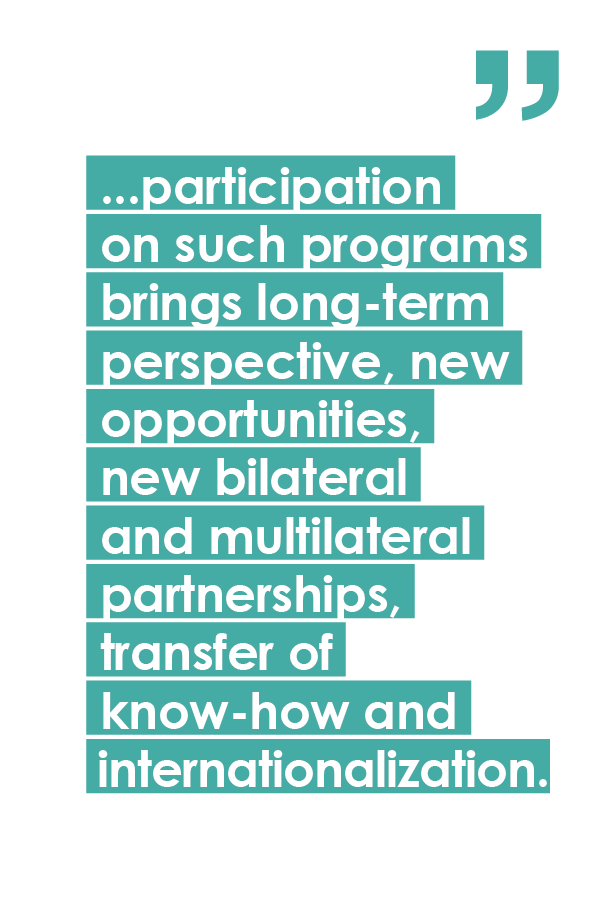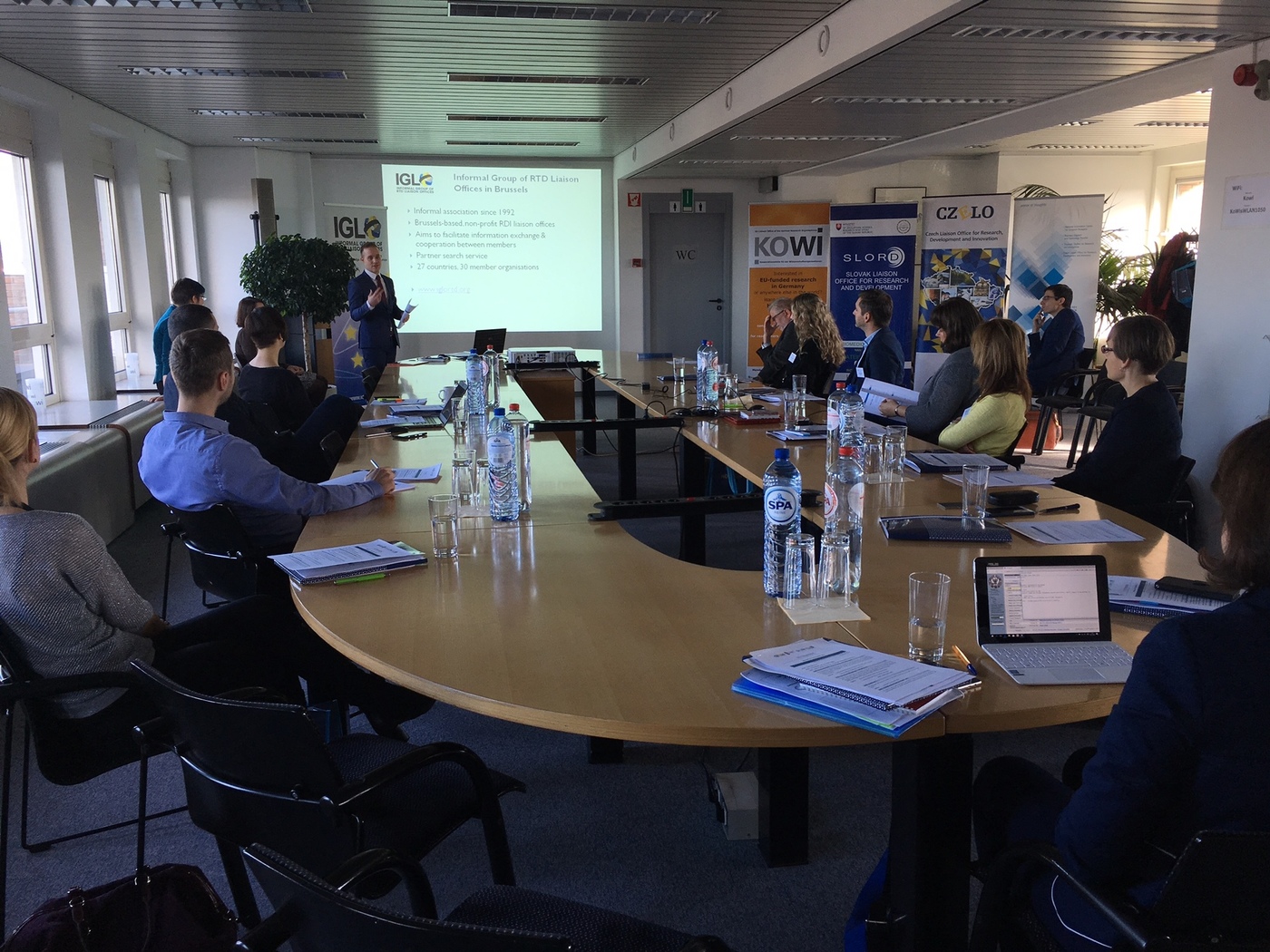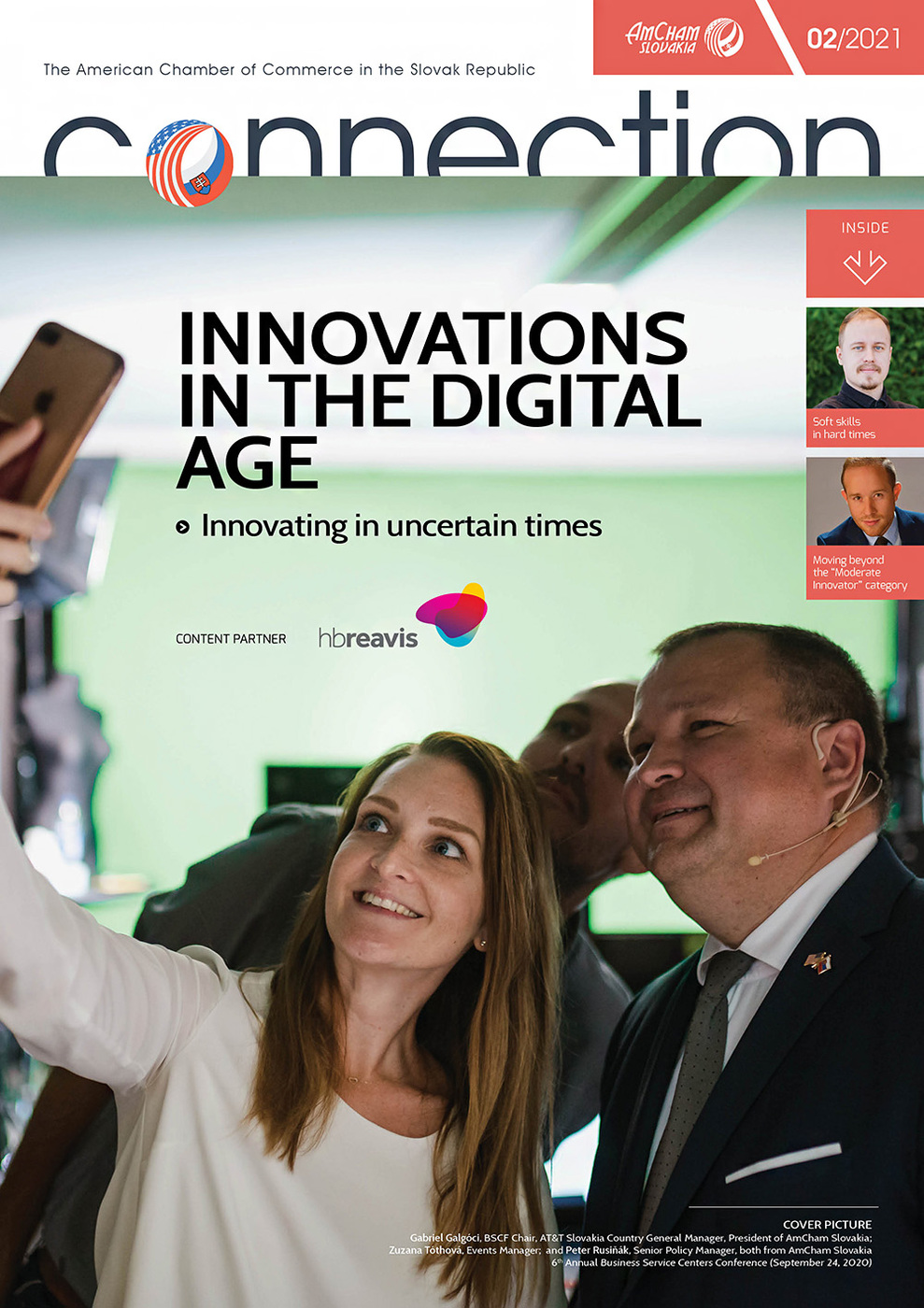What is the main mission of SLORD?
The main mission of SLORD, which was established back in 2014, is to bridge the gap between the EU institutions and the Slovak Republic, namely to stimulate the cooperation between the European and Slovak subjects of the research and innovation ecosystem. Our main focus is on monitoring the European policies and various instruments to support research and innovation, specifically on the EU Framework Programme for Research and Innovation – Horizon 2020 and incoming Horizon Europe Programme (2021-2027).
What kind of support can you offer to Slovak companies active in the field of R&D and innovation?
Firstly, we provide targeted and up-to-date information for the Slovak research and innovation community on the incoming calls and funding opportunities for research, development and innovation from the European resources, and particularly through Horizon 2020 and Horizon Europe Programme. We are constantly monitoring and analyzing trends of the EU research, development and innovation policies.
Secondly, we provide concrete support in the preparation of the R&I projects, mainly by providing expert consultations on the EU projects, by providing targeted information on possibilities of involvement in international consortiums, by consulting services for searching for partners and involvement in the European networks.
Thirdly, we organize information days, workshops, trainings, seminars and conferences in order to improve knowledge about the Slovak research and innovation in Brussels.
Last but not least, our office offers the Slovak researchers the opportunity to use our meeting rooms to organize project meetings, seminars and trainings.
It is important to say that our services are available free of charge to all Slovak researchers and innovators (from public and private institutions, SMEs, individuals) as well as researchers coming to Slovakia.
Can you mention any specific examples of how assistance provided by SLORD helped innovative Slovak companies reach their goals?
I would highlight a Slovak SME which we helped with visibility in Brussels, provided several meetings with EU officials and organized a dedicated event. The company has been able to successfully obtain grants from several EU funding programs. We have provided expert advice and recommendations to a number of Slovak companies that have applied for the prestigious grant from the European Innovation Council or have been selected to receive the Seal of Excellence, official EU label awarded to high quality project proposals.
How would you describe the Slovak R&D and innovation landscape?
Based on the recommendations and data provided by the European Innovation Scoreboard which assesses relative strengths and weaknesses of national innovation systems, Slovakia is among Moderate Innovators.
The impact of employment and the impact of sales are the strongest innovative dimensions in the Slovak environment, where Slovakia scores above the EU average. Slovakia achieves very strong results in terms of employment in fast-growing enterprises in the field of innovative sectors, sales of new-to-market and new-to-firm product innovations, exports of medium and high-tech products, as well as the number of new holders of doctoral degrees.
On the other hand, Slovakia is facing several chronic challenges that are being solved very slowly: Slovakia reaches the lowest results in terms of finance and support - total R&D expenditure is very limited compared to other EU Member States (including V4 members), low investments in innovations, a very limited level of collaboration between public and private sectors, knowledge transfer and intellectual assets. In some cases, Slovak research and innovation ecosystem may even seem cyclical and still not open to full internationalization, whereas, in my personal view, opening up to the world would bring about a fundamental paradigm shift.
Where do you see the biggest potential for improvement?
We are witnessing a slight improvement and positive trends with the level of venture capital investments and private sector expenditures on research and development in recent times, however, both values are still limited compared to the average EU level.
The good news is that not even a pandemic has stopped the growth of some Slovak companies or innovative ideas and more and more companies coming from Slovakia are gaining significant support and recognition. I believe that framework conditions and specific schemes and measures should be created for them at the national level to enable them to increase their competitiveness and encourage their growth.
The South Moravian Innovation Centre (JIC) in Brno seems to be a great example of how to successfully combine the potential of business and academia at the regional level. Why is it difficult to replicate this kind of success in Slovakia?
JIC, from its establishment in 2003, has been able to build an effective ecosystem, connecting start-ups, investors, research and scientific centers, and public institutions – both with each other and with international organizations. It has been built on the successful concept known from the Western EU Member States and was conceived as a long-term plan. Such ecosystem provides financial and in-kind contribution to potential beneficiaries - specific financial support is even provided by the region and the City of Brno.
It is important to say that the public sector is an active player, creating attractive framework conditions that are able to support innovators and provide conditions comparable to those in the Western EU Member States. This is not an easy task – it requires a long-term vision, financial commitment and sustainability, predictable environment, experience with the EU funds (especially in the context of the usage of synergies between funds) and enthusiasm of all relevant parties.
In case of Slovakia, I guess we were not able to bring all these important components together at the same time. However, such environment is very dynamic. We are moving towards a new programming period with a new set of financial rules, so there is a chance to create such an environment.
What opportunities in research, development and innovation are currently available at the EU level?
The main instrument of the EU to support research and innovation is the incoming Horizon Europe Programme for 2021-2027. The program is designed for all entities (public and private), the non-profit sector and individuals. It represents 95.5 billion euros in current prices and stands for the third biggest program of the long-term EU budget.
Horizon Europe Programme will continue to support frontier research projects by the European Research Council (ERC), exchanges of researchers under the Marie Curie-Skłodowska Actions and investments in research infrastructures (including e-infrastructures). It will directly support research on main societal challenges, strengthen technological and industrial capacities and set up “missions” at the EU level. In addition, it will stimulate breakthrough solutions that contribute to building an innovation-friendly market and ecosystems. It will aim to make Europe a key player in market-creating innovation through the European Innovation Council (EIC) that is relevant for private companies. The European Institute of Innovation and Technology (EIT) will continue to focus on promoting the integration of actors with the common goal of developing innovation in research, higher education and entrepreneurship. At the same time, the European Commission proposes to extend the measures that should be targeted at the EU Member States with weaker R&I results, including Slovakia. Funding for research, development and innovation in the forthcoming 2021-2027 programming period will also come from the following programs: InvestEU, cohesion policy, European Defence Fund, ITER, Euratom and Digital Europe Programme.
Are Slovak companies sufficiently informed and prepared to take full advantage?
I cannot speak about other programs than Horizon 2020, but we see a positive trend of more and more Slovak companies submitting their project proposals to the EU Framework Programme for Research and Innovation. The numbers are clear; more than 60% of the total budget allocated to Slovak subjects so far goes to private companies. I am convinced that this is a strong signal that Slovak companies are also aware of the value this program offers.
It is not just about interesting financial possibilities and visibility of their results at the European level, participation on such programs brings long-term perspective, new opportunities, new bilateral and multilateral partnerships, transfer of know-how and internationalization.
From my personal point of view, the advantages of participation in the EU Framework Programme for Research and Innovation are concise and clear rules of participation (all in one place) and high transparency of the whole process which means that evaluation is done by independent experts under coordination of the EU executive agencies. The average project is around 3.5 million euros and lasts for five years.
 How has the ongoing Covid-19 pandemic altered the innovation landscape? Do you see any potential positive effects in the longer run?
How has the ongoing Covid-19 pandemic altered the innovation landscape? Do you see any potential positive effects in the longer run?
We face an unprecedented crisis in our interconnected world where health, security, and economy affect populations across borders. The ongoing COVID-19 pandemic has shown us that we need to have a strong research and innovation basis in every EU Member State. Health and health care have not been EU´s primary focus. The current health and economic crisis have been a wake-up call – therefore, I am happy to see that the European Commission has presented its recovery plan, Europe4Health, integrated in the proposal for the next Multiannual Financial Framework for 2021–2027.
Since the beginning of the coronavirus pandemic, the European Commission has announced to allocate hundreds of millions of euros in emergency research funding under Horizon 2020 to help find treatments, medicines and a better strategy to combat Covid-19. In total, the EU has committed to invest 1 billion euros from Horizon 2020 under the Coronavirus Global Response initiative. To date, more than 780 million euros has been mobilized from this pledge, of which at least 350 million is to support the development of coronavirus vaccines. The new initiative HERA Incubator will provide the means to detect and suppress further mutations of the virus, as well as the development of more effective vaccines. The additional funding will contribute to increasing the capacity for monitoring and analysis of different coronavirus variants, as well as for data sharing through the strengthening of the European Covid-19 Data Platform and other existing projects and research infrastructures. The national ministries have also agreed on the first ERAvsCorona action plan which lays out ten priority short-term coordinated actions to tackle the coronavirus.
We know that sharing of knowledge and innovation is crucial and saves lives. Since the start of the Covid-19 outbreak, research and innovation has been one of our most impactful tools to tackle the disease. Specific calls dedicated to Covid-19 from incoming Horizon Europe programme will also provide solutions to major concerns of citizens, frontline workers, policy makers and industry for living with the virus in the years to come.

Andrej Kurucz, Head of the Slovak Liaison Office for Research and Development
Andrej Kurucz serves as the Head of the Slovak Liaison Office for Research and Development based in Brussels. He is the Slovak national delegate in the Strategic Configuration Programme Committee of the Horizon Europe programme (2021-2027) and national expert in Cluster 3, Cluster 4 and European Innovation Council / European Innovative Ecosystems Programme Committees. During the very first Slovak Presidency in the Council of the EU, he was vice-chairing the Research Working Group and Space Working Group of the Council of the EU. He acts as an advisor in various expert committees of the European Commission.



Follow us